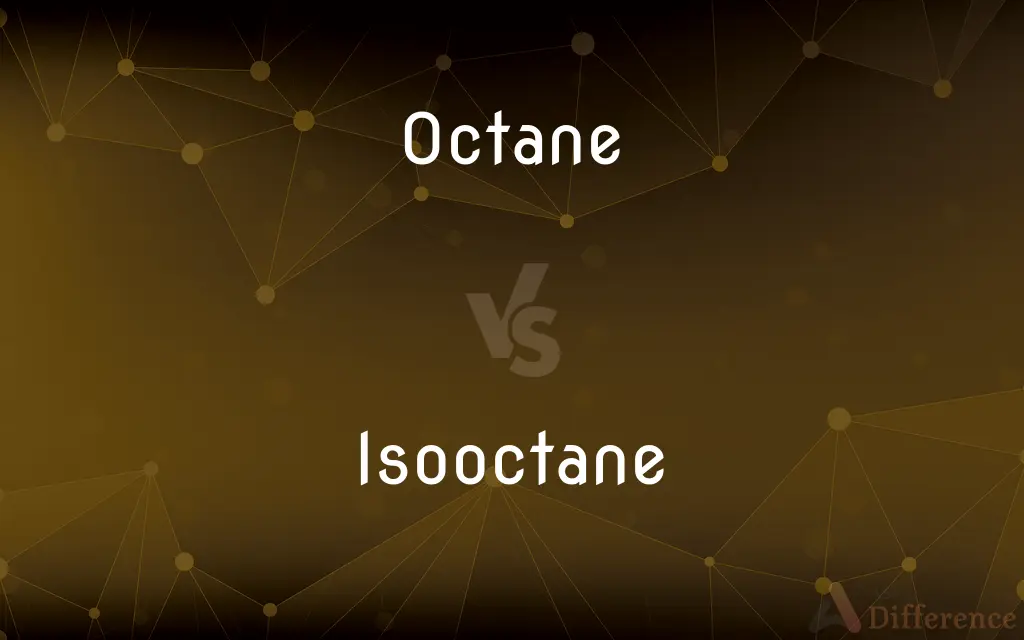Octane vs. Isooctane — What's the Difference?

Difference Between Octane and Isooctane
ADVERTISEMENT
Compare with Definitions
Octane
Octane is a hydrocarbon and an alkane with the chemical formula C8H18, and the condensed structural formula CH3(CH2)6CH3. Octane has many structural isomers that differ by the amount and location of branching in the carbon chain.
Isooctane
A flammable liquid hydrocarbon, C8H18, having a highly branched structure and used as a solvent and to determine the octane ratings of fuels.
Octane
Any of various isomeric alkanes with the formula C8H18, found in petroleum and used as a fuel and solvent.
Isooctane
(organic compound) any isomer of n-octane; especially 2,2,4-trimethylpentane, used as a reference in the determination of the octane number of fuel
Octane
An octane number.
ADVERTISEMENT
Octane
(organic compound) Any of the eighteen isomeric aliphatic hydrocarbons (C8H18) found in petroleum, especially an iso-octane 2,2,4 trimethyl-pentane; they are used as fuels and solvents.
Octane
Octane number
Octane
Any one of a group of metametric hydrocarbons (C8H18) of the methane (paraffin) series. The most important is a colorless, volatile, inflammable liquid, found in petroleum, and a constituent of gasoline or ligroin.
Octane
Any isomeric saturated hydrocarbon found in petroleum and used as a fuel and solvent
Share Your Discovery

Previous Comparison
Foxy vs. Fox
Next Comparison
Milk vs. Ropy













































